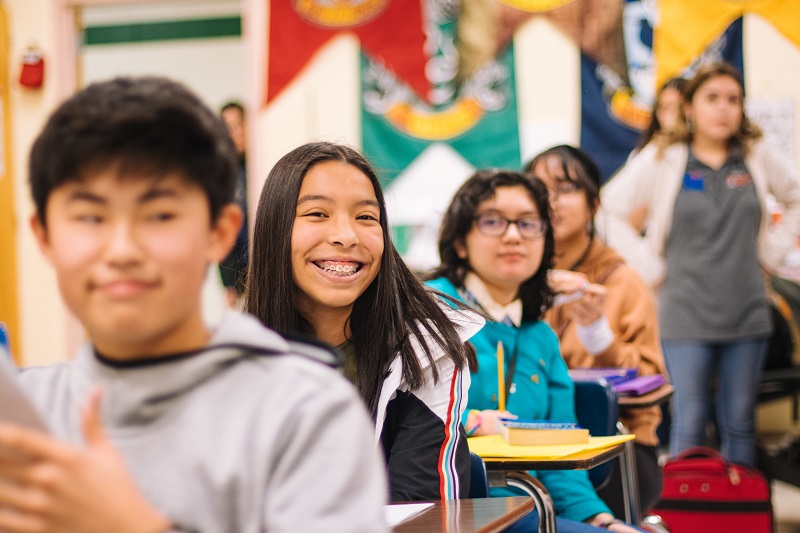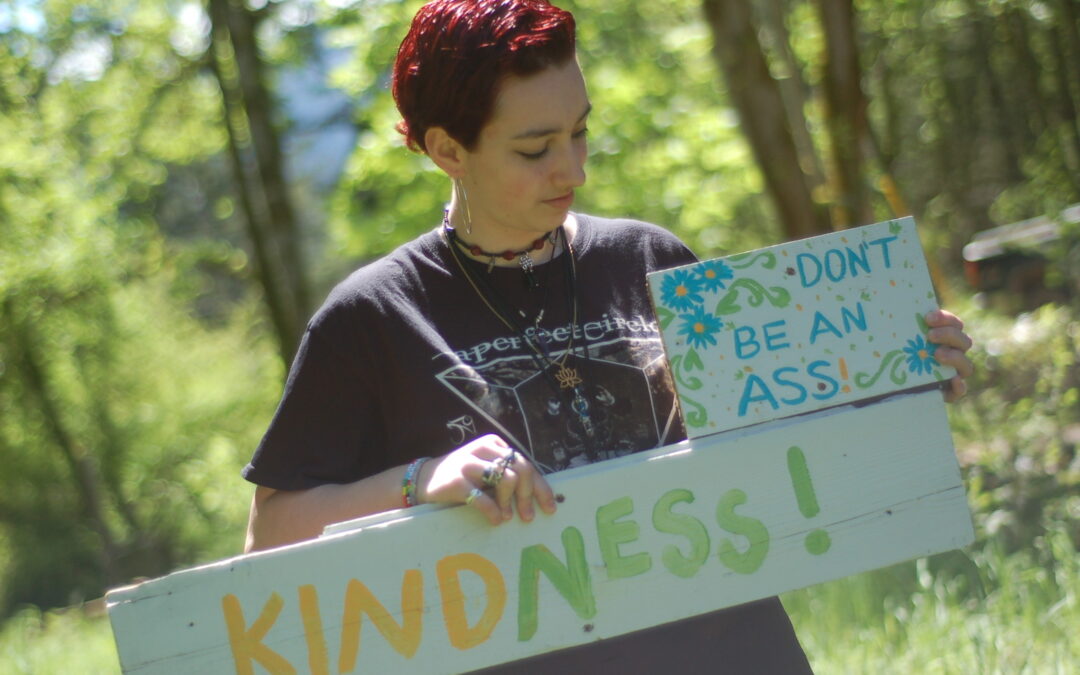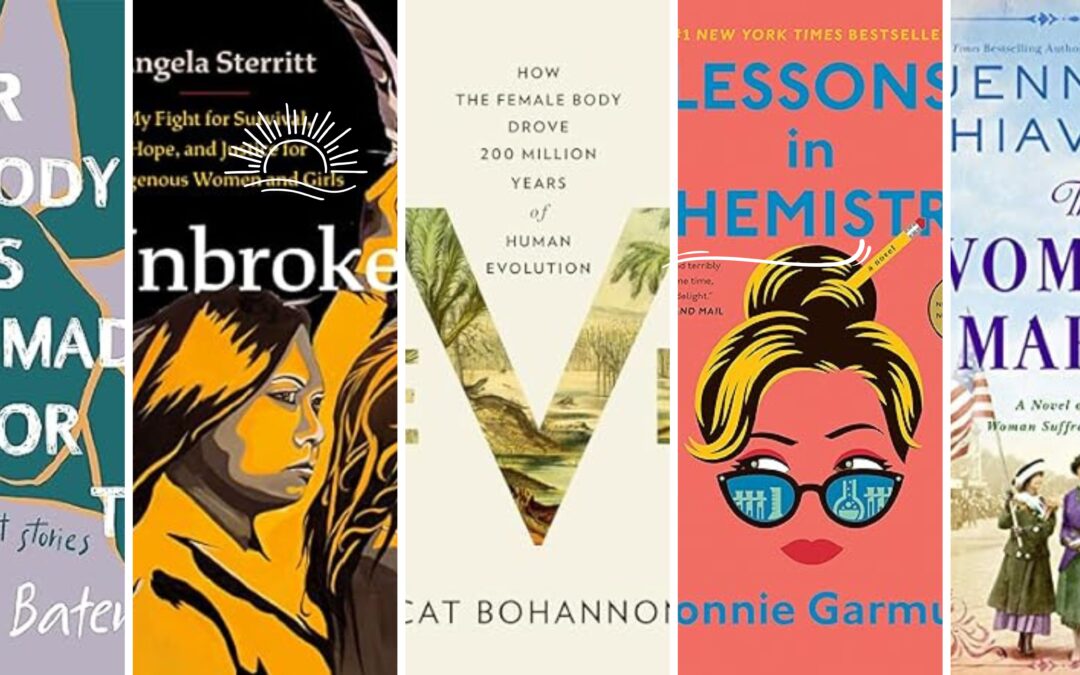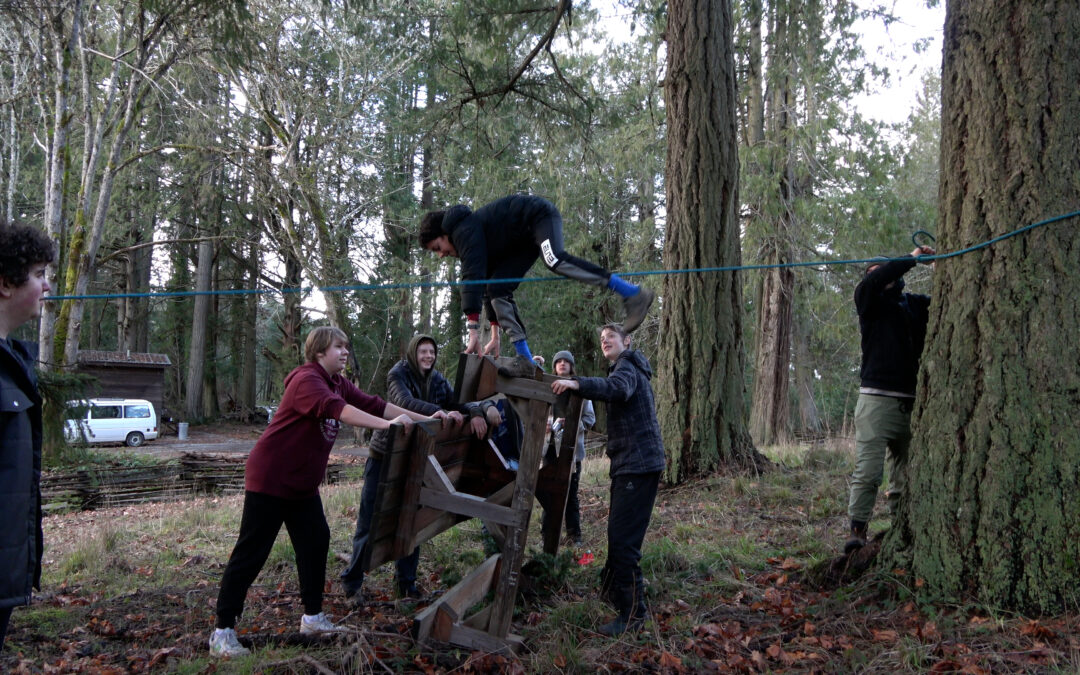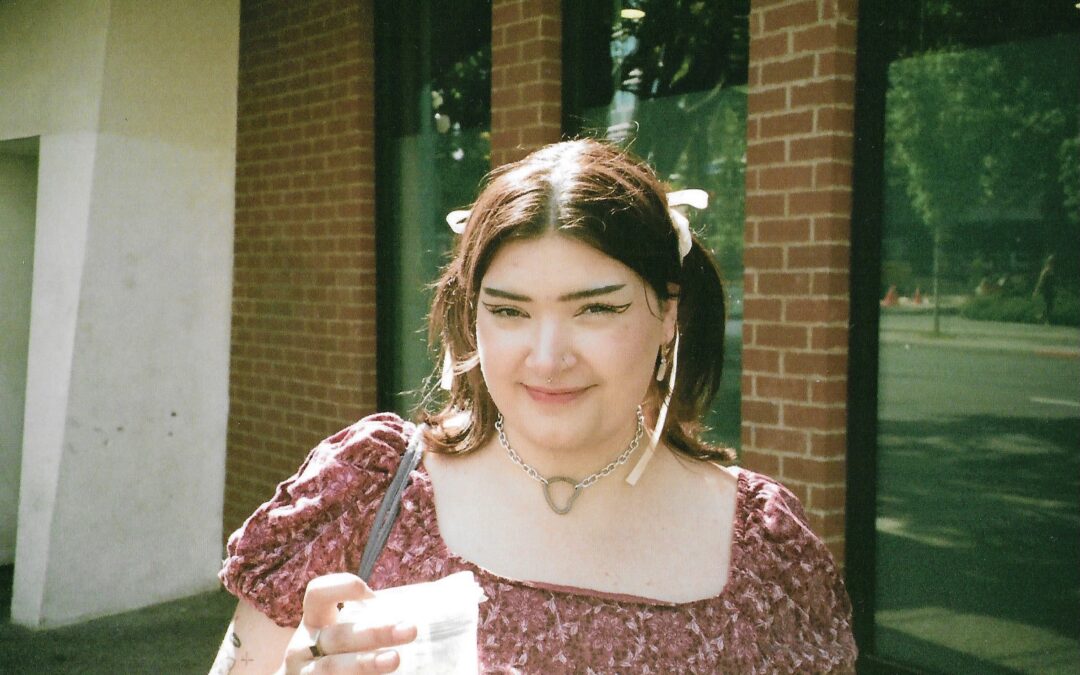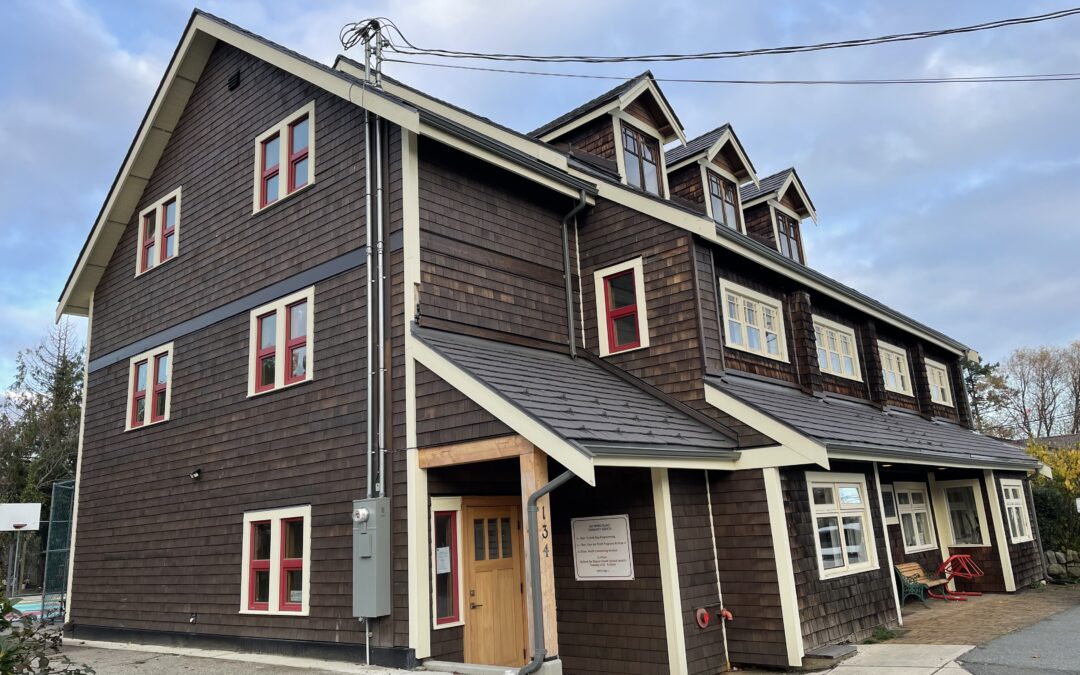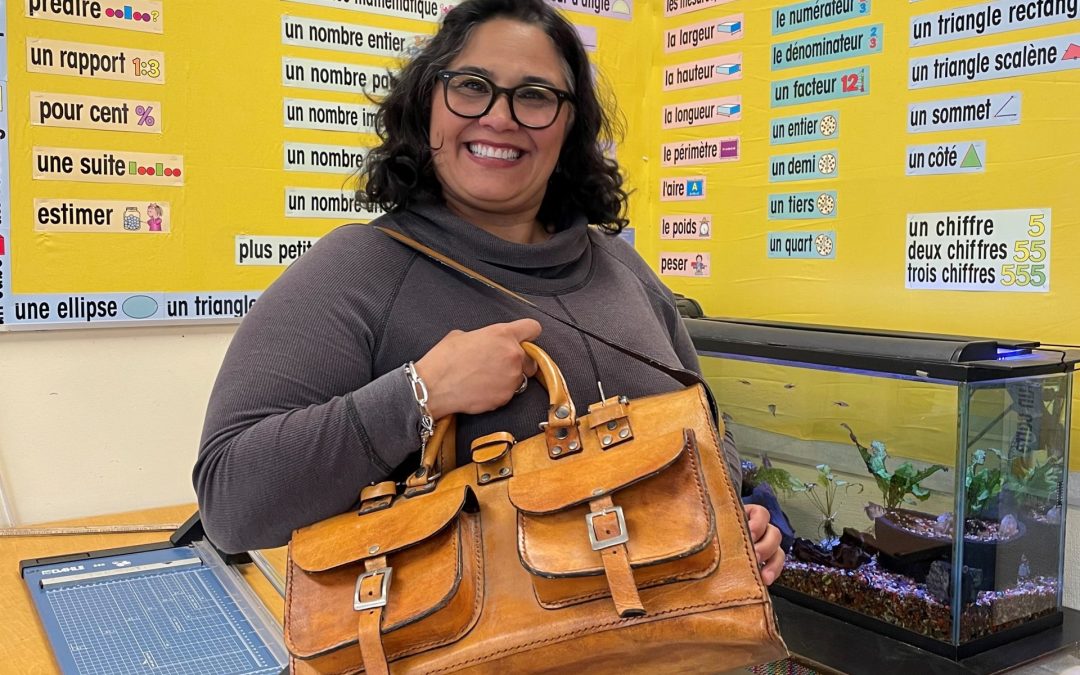As a parent of a participant in The Circle’s programs, and as a local educator, Shelly Johnson has a unique perspective on social-emotional education. Our Education Outreach Program Coordinator Adele Mark, sat down with Shelly to hear her take on the benefits of social-emotional learning.
Shelly, could you tell us a little bit about yourself before we start?
I am the principal at Salt Spring Elementary, and I have been a supporter of The Circle for some time now. There’s been programming in my school that’s been well received over the years. And my son Liam is in the Pass It On Boys program.
Can you speak to some of the impacts that Liam’s participation in the program has had on his social-emotional well-being? Has he developed any new skills? What are the best lessons or takeaways that the programming has to offer?
It’s been really great for him. He has made a strong connection with the facilitator of the program last year. The facilitator is musical, and so is Liam. Their connection has inspired Liam to continue to do things with music; write music and play music. It’s been a positive mentorship for him. I have also noticed that his confidence and self-esteem have increased. His focus has become better since being involved. Not only have there been mental health benefits, but physical ones as well. The program has provided him with a chance to run around outside, play games, and be active with his buddies, without a lot of expectations. Liam is not very athletic, and he would say that to you himself! If he was on the soccer team, for example, he would feel a lot of pressure to be good. In Pass It On, there is less expectation of performance or achievement; they are just there to have fun and connect. That has been a great benefit for youth like my son, who would usually rather be on a couch with an iPad instead. Especially this year with a pandemic, to have something available socially for kids when a lot of other programming was canceled, has been vital.
And where do you see these changes in Liam’s social-emotional well-being having the biggest impact on his life? At home, his relationships, his school performance?
I would say it has impacted him in all of those spheres. The new connections he has made through the program and the strengthening of some of his existing connections have been really good for his relationships. That also improves things at home because he’s happier when he’s involved in a program like this. He did very well this year in school and as I mentioned, his focus has improved so this program could be attributed to that. It has helped his musical performances and led to his decision to stay in the school band. Generally, he is feeling better about himself.
We live on Salt Spring Island, which is a rural area with a population of about 10,000 people. What are the impacts of rural living on your child’s development? What are the gifts? What are the challenges?
One gift is that this is a safe place to grow up. Even in the sense of the pandemic this year, Salt Spring was a safe place to be. There are so many things to do outside and plenty of recreational activities, like going for a hike or a bike ride. He’s known some kids his whole life; I was in maternity class with their parents before he was born! Some of those kids are in Pass It On with him. But one of the biggest challenges is that there aren’t so many opportunities for kids. There are only so many other kids their age to interact with. Another challenge is that the kids don’t grow up with a worldly perspective. And they don’t know how to be street smart. It is something they will have to learn when they leave.
Do social-emotional programs, like those offered by The Circle, help to counteract some of the challenges that you have highlighted?
Oh, definitely. It provides a forum for kids to get together. Liam has had the opportunity to connect with kids his age outside of school, forge some new connections, as well as deeper friendships with some of the kids that he already knew in the program. He also got to meet some older kids and the mentors, which he probably never would have had any interaction with otherwise. That’s been really positive.
You have a unique perspective as both a parent of a youth in our programming and as an educator. Taking the latter perspective, have you noticed similar feedback from other kids, parents, or teachers about the positive impacts of social-emotional programming?
I will speak to the Empathy Project that has gone on here at Salt Spring Elementary. I’ve heard nothing but positive feedback about the program. The teachers tell me that it’s wonderful. I think it’s fantastic to have social-emotional programs like this available in schools. Not all teachers are comfortable teaching a program like this on their own or have had the opportunity to be trained to deliver this kind of programming, so the work The Circle is doing is unique and vital. We appreciate having that available to our students.
Have you personally benefited from social-emotional learning or education in your own life?
My job is very much a people job. I’m constantly learning about others and building my resiliency and my skills in that area. It makes me better at what I do. I have often taken workshops and read books and articles about social-emotional learning. This learning improves my own personal and professional life. It’s important for everyone.
Thank you so much for your time today. Is there anything else important that you’d like to add?
The Circle does fantastic work and I wish you all the best. I’m happy to continue both my professional and personal connection to the organization. Good luck to you!
Photo by Jeswin Thomas on Unsplash

